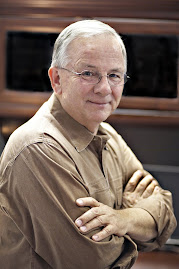In his groundbreaking, best-selling book, Bowling Alone: The Collapse and Revival of American Community, Robert Putnam[i] warned of the collapse of this vital relational characteristic of our culture. He argued that we Americans have become relationally disconnected from family, friends, neighbors, and our societal structures such as school, work, church, and community organizations. Putnam noted that we sign fewer petitions, belong to fewer clubs and organizations, volunteer less, know our neighbors less, and spend less time with our families and friends. He added that more Americans are bowling than ever before, but they are “bowling alone.” Social trust is being destroyed in our culture.
Consequently our personal and professional lives are relationally impoverished. Putnam observed that children today are unhappy, teachers are afraid of their students, crime is increasing, and employers and employees distrust each other. All this, according to Putnam, is because of the recent and rapid decline of the social capital that Alexis de Tocqueville claimed was the distinguishing feature that made America great.
Regrettably leaders seem to have lost sight of this important leadership principle. The relational model of leadership is sorely missing in most popular notions about leadership. Many leadership models warn against building relationships – arguing that productivity will always suffer when relationships are established with co-workers and subordinates. Consequently, 21st century organizations are marked by loneliness and isolation. Technology is replacing social intimacy. More and more people are living alone, working alone, studying alone, and “bowling alone.” There is a significant loss of social capital causing fear, distrust, and insecurity, which leads to loss of effectiveness and productivity.
It doesn’t have to be like this!
There is an Ethiopian proverb that puts it this way: “Many spiders can hold down a lion.” Members of a team share a common understanding and commitment to the preferred future of the organization. Team members desire to make a difference, to leave an indelible mark in the tapestry of life and the chronicles of mankind. People are better together.
There are a variety of simple and inexpensive ways by which you can intentionally claim and develop your relational leadership capacity. Here are just twenty simple but effective ideas to get you started. I know you will add others to this list:
- Mentor a new employee
- Organize a company sports team
- Attend home parties when invited
- Ask co-workers and employees for their help and advice – and reciprocate
- Attend a seminar on team building
- Say “hello” to your employees and co-workers
- Host a cookout at your home for your employees
- Get to know something about all your employees
- Encourage your employees to host community group meetings on your site
- Eat lunch in the break room
- Eat breakfast with your employees
- Roll up your sleeves and work alongside your employees from time to time.
- Attend sporting events with your employees
- Share produce from your garden
- Host and attend monthly potluck lunches
- Attend in-house seminars with your employees
- Acknowledge and recognize special accomplishments and achievements
- Organize and participate in a fitness program with co-workers and employees
- Ask to see family photos of your co-workers
- Attend weddings, baptisms, and funerals
You are inherently relational. You were created by God for intentional and deeply interpersonal relationships. Your personhood and calling as a bearer of God’s image is to be expressed and fleshed out in community – in relationship. Such communal living and working requires the unconditional commitment of your time, talent, and treasure, together with a high regard for the well-being and personhood of others.
Restoring this relational model of leadership to your organization is a strategic response to the isolation and bitter loneliness of those who find themselves “lost” in the midst of urban society. It is your key to effective leadership in the 21st century.
You are a leader.
You are relational.
This is the truth about leadership.
This is The Genesis Principle of Leadership.
Now go out and lead – together.

Did you purchased a copy of The Genesis Principle of Leadership yet? Your copy of this"edgy" approach to leadership is available at:
PRINT BOOK: http://www.tatepublishing.com/bookstore/book.php?w=978-1-60462-483-0
AUDIO BOOK: http://www.tatepublishing.com/bookstore/book.php?w=978-1-60604-106-2
[i] Putnam, Robert, Bowling Alone: The Collapse and Revival of American Community (Simon and Schuster, 2000, New York).





